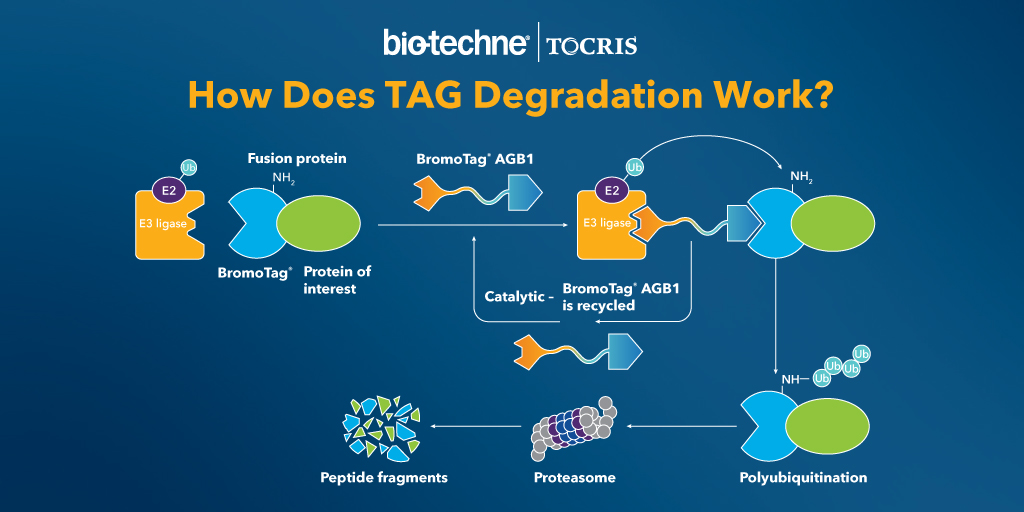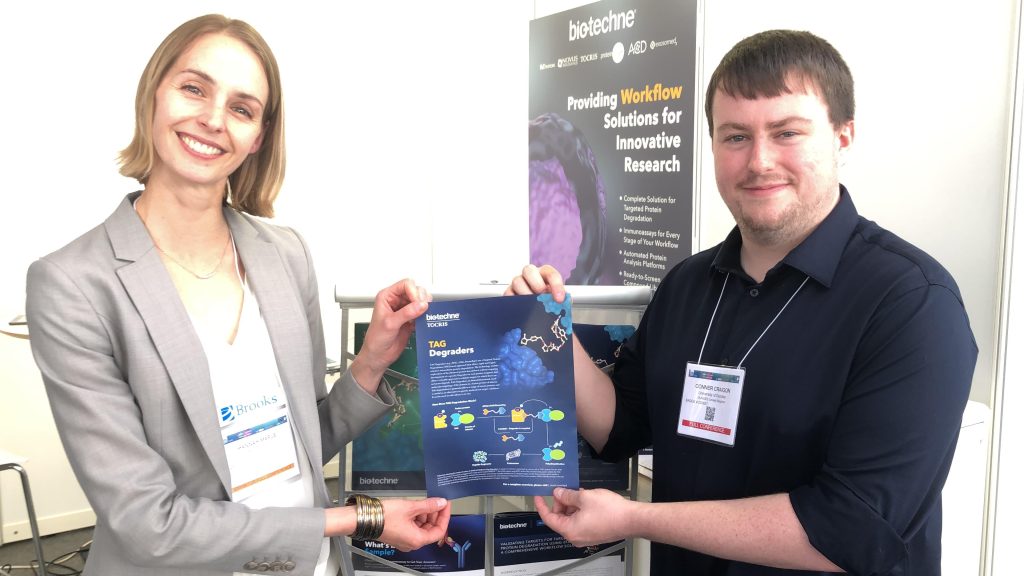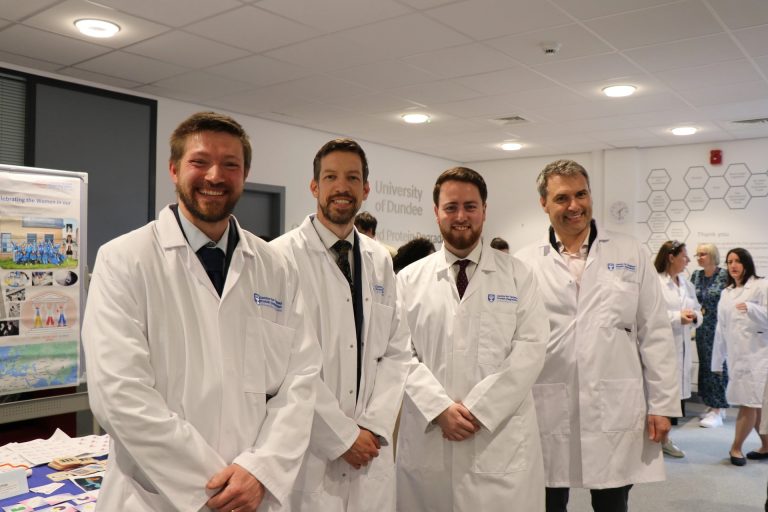
The University of Dundee and Bio-Techne, a global life sciences company providing innovative tools and bioactive reagents, will partner to commercialise technology developed at Dundee that enhances the understanding of undruggable diseases.
Bio-Techne has signed an exclusive licencing agreement to commercialise Dundee’s BromoTAG® system and fund the recruitment of postdoctoral researchers at the University’s Centre for Targeted Protein Degradation (CeTPD).
Working alongside some of the world’s leading TPD scientists, the new CeTPD researchers will create new chemical tools that will be made available by Tocris, a Bio-Techne brand, for use by the biomedical research community.
Malfunctioning proteins are a primary mechanism of disease development. Drug discovery scientists aim to identify these aberrant proteins in the cell, understand their function, and develop novel compounds to target them. Conventional methods for doing this are costly and have limitations that prevent researchers from controlling protein levels directly, quickly, and reliably.
BromoTAG enables scientists to determine which individual proteins possess the greatest potential as a target for new therapeutic agents. Using genome-editing technologies, BromoTAG pins a small biological tag to a target protein and labels it for subsequent modifications, for example cellular degradation, allowing researchers to evaluate its functional role and impact on disease development.
CeTPD Director Professor Alessio Ciulli is a pioneer in protein degraders research, while Tocris has strong know-how and expertise in reagents. Over the past five years, the company has been working with Professor Ciulli to commercialise various chemical tools such as inhibitors and degraders developed in his lab.
Professor Ciulli said, “We are delighted to announce the successful commercialisation of a recent discovery in the Centre for Targeted Protein Degradation, and for continued collaborative work between Dundee and Tocris. We will jointly work to develop the next-generation BromoTAG for a variety of applications.
“The licensing deal deepens the relationship between the University and Bio-Techne, while the postdoctoral project at Dundee is the first of its kind that the Company has invested in. These developments cement the importance of our research to the field of targeted protein degradation.”

BromoTAG was developed by Conner Craigon and Adam Bond, PhD students at CeTPD. A powerful chemical biology tool, it enables the rapid and selective removal of any individual protein. It has been shown to degrade the tagged protein at low concentration, within minutes, and reversibly. Critically, it degrades only the individual target protein and prevents any off-target effects.
“I am particularly pleased about the fact BromoTAG was developed by two of our highly talented PhD researchers,” continued Professor Ciulli. “This demonstrates that it is possible to achieve rapid commercialisation of the research taking place here and highlights the opportunities for the best young scientists available at Dundee’s CeTPD, and our School of Life Sciences more widely.”
Will Geist, Bio-Techne’s Protein Sciences Segment President, said, “We are excited about TPD, both as an enabling technology for life science research, as well as for its potential to deliver a wave of new therapeutics in the clinic. Bio-Techne has built a leading portfolio of tools and technologies to support scientists through every stage of their TPD research, and we are delighted to offer BromoTAG to researchers through our license with the University of Dundee.
“BromoTAG’s ability to rapidly degrade any target protein with high precision in a dose-dependent manner, is a huge benefit to scientists, both for target validation and further exploration of the proteome. We have a long-standing relationship with the University of Dundee to commercialize exciting and useful technology and look forward to expanding this relationship through our support of post-doctoral research to further develop this platform.”
The University is one of the world leaders in TPD, a field of research that is revolutionising drug discovery and which has received billions of pounds of investment in recent years. This approach is making the treatment of diseases previously thought to be undruggable a reality.
Dundee researchers and teams led by Professor Ciulli have previously revealed fundamental insights into the working of the degrader molecules that they have designed and that are used across the globe.
TPD co-opts the cell’s natural disposal systems to remove target proteins and is increasingly applied as a tool to study biology as well as to develop medicines for diverse therapeutic areas including oncology, inflammation, dermatology, immunology, and neurodegenerative diseases.
Degrading rather than inhibiting a target protein offers several advantages such as more efficacious drug response at lower doses, and a more targeted intervention with potentially reduced side effects and disease resistance. The first compounds in this class, termed Proteolysis-targeting chimeras (PROTACs), are being trialled as candidate medicines against various diseases and progressing through clinical trials.
Notes to editors
BromoTag® is a registered trademark of the University of Dundee
Related links
- SLS News: Tag tech collaboration to battle undruggable diseases
- UoD stories: Tag tech collaboration to battle undruggable diseases
- BioTechne News: BIO-TECHNE ANNOUNCES LICENSING AGREEMENT AND PARTNERSHIP WITH UNIVERSITY OF DUNDEE
- PR Newswire: BIO-TECHNE ANNOUNCES LICENSING AGREEMENT AND PARTNERSHIP WITH UNIVERSITY OF DUNDEE
- DIGIT News: DIGIT Movers and Shakers | July 2022
